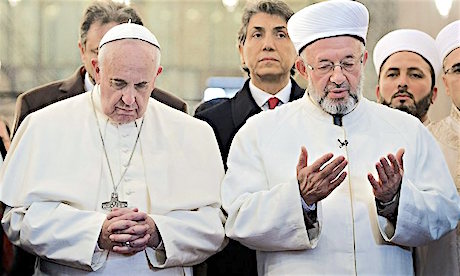Results from a research project in New Zealand suggest that, in that country, communities of religious non-Muslims are a key resource for bridging the Muslim acceptance gap.
The researchers were interested in the drivers of prejudice and tolerance towards Muslims, says Associate Professor Sibley, a member of the research team.
“New Zealand is an incredibly diverse, socially progressive and tolerant country, however levels of extreme prejudice towards Muslims are twice as high as for other minority groups.”
Analysis of the data suggests a correlation between a strong religious faith and a more accepting attitude towards Muslim peoples.
When it comes to religion and prejudice, it seems place trumps beliefs.
“In peaceful countries such as New Zealand, religious faith enhances charity and acceptance.” says Dr John Shaver another of the researchers.
The researchers found that while secular people are more tolerant than those who only weakly identify with their religion, non-Muslim New Zealanders who identify as highly religious are the most tolerant of Muslims.
This correlation is about as strong as the correlation between having a postgraduate degree and being more accepting of Muslims
Perceptions incorrect
Shaver says several decades of research suggests religious people are more prejudiced to those outside of their in-group.
Research has also suggested that longstanding Christian-Muslim conflicts are self-perpetuating.”
“Neither perspective is quite right,” Shaver says.
Who are the researchers?
The research team was made up of Auckland University’s Associate Professor Chris Sibley, and from Victoria University; Dr John Shaver, Dr Geoff Troughton and Associate Professor Joseph Bulbulia.
The conclusions are based on analysis of data collected from almost 14,000 New Zealanders.
The research was supported by the Royal Society of New Zealand, and recently published in the international journal PLOS ONE, in a paper titled Religion and the Unmaking of Prejudice toward Muslims: Evidence from a Large National Sample.
Source
- phys.org
- Image: www.theguardian.com
